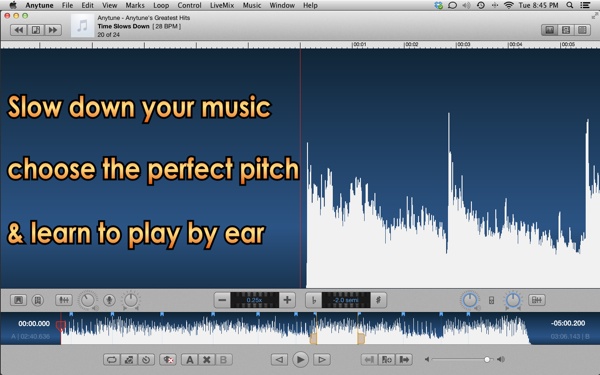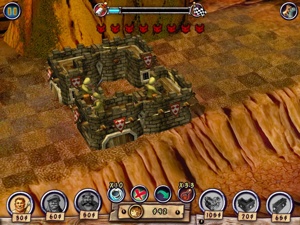By Greg Mills
As I have mused in previous articles, digital download content must have reasonable economic market value to flourish. The old concept of “everything on the Internet needs to be free” has slowly evolved into a mixture of both free and paid content.
Apple was really the first to create a “go to market” scheme that worked, selling digital music on line for a dollar a song. It was due to a combination of a serious intellectual property protection system, a neat iTunes interface for both Macs and the PC, iPods that just worked and (Steve Jobs, who was personality able to hammer the music industry into accepting his pricing structure). While there is still some bitching and moaning, Apple’s iTunes store is just too big a market for serious music labels to not participate in.
Now, the same sort of pricing issues are being worked out in the publishing industry. Magazines that are currently printed on downed trees are struggling to find the economic sweet spot for digital download of that same content and potentially more, as in video. The first digital download magazines were priced nearly as high as half an entire year of regular magazine issues, that have to be printed on paper and mailed to readers at great expense.
The market spoke in a fairly uniform voice, as people were not willing to pay so much on a regular basis. I suspect a lot of folks bought one digital magazine as sort of a test of the concept, only out of curiosity. Sales were very limited, at that price point.
Six months later, some major publishers have moved to a new and more affordable price structure where those who pay for a paper version subscription as get the right to download the digital version at no additional price. I think they are just half-way there in reducing the price structure to meet the market price. Look for the same market price “gravity” to also force iBooks down. Jobs is sly enough to have anticipated all this.
There is an interesting price point calculation that goes on in our heads when we see something we like and then look at the price. “Sticker shock” and “buyer’s remorse” occur when the reasonable expectation of what something ought to cost is exceeded by too much. Sometimes we rationalize and just go ahead and buy things that seem a bit pricey, but we want them enough to go ahead and pay the high asking price. This process in many cultures is called haggling and is expected in most purchases.
The game is played and enjoyed by both sides as the seller prices his wares so high only a fool or a foreigner would pay the price listed. The savvy buyer offers half the asking price as both a starting point and to indicate to the seller that they are interested in buying the item. The issue is only the price. The buyer and seller work the price out in an animated and dramatic ritual as old as commerce itself. The buyer may just walk away to indicate he is not willing to match the seller’s lowest asking price. The buyer (seller of the goods) may follow and drop his asking price in hopes of finding an acceptable negotiated price.
Digital magazine buyers walked away in droves and early downloaded magazines failed to take off at the high price publisher hoped for. Now they are drastically dropping their price to include the download for free to those willing to buy the hard copy subscription. I submit that there will be one major final price reduction to reach the tipping point where digital downloaded magazines actually replace paper versions. That is when the buyers are willing to drop the hard copy and settle for just the digital copy for some price less than the snail mail subscription price. If you can give me the 12 hard copy issues for $9.99 and include the digital download for free, why not cut the price to $4.99 for 12 digital issues alone and keep the printing, paper and mailing costs out of the calculation? Look for that to happen before the digital magazine actually replaces the hard copy.
“People” magazine was the first to break the first price barrier, but still wants to send you the hard copy at current subscription prices. People who subscribe to “People” magazine can also go to the Apple App Store and download an app that lets them enter their hard copy subscription number to get a free digital copy of the current issue. “It’s our way of say thanks for being a valued print subscriber” the in-app storefront says. I read between the lines to read a bit more: “Once we get you used to the digital version, we will offer you a few bucks off to drop the dead tree version.”
The old calculus of what something is worth will kick in, and when there is a reasonable discount for consumers who forgo the paper, printing and mailing costs compared to the current subscription price, digital magazines will really take off. I will go on record as stating that when a digital download subscription (without the hard copy) gets down to half the best annual subscription rate now available, the digital magazine age will begin and iPad and similar devices that are coming, will really reach their potential. That will not happen until greedy publishers really get that consumers demand a major discount for not getting a hard copy.
On a personal note, the US Patent Office recently published my Utility Patent Application for a Solar Energy Start-Up I have been working on. While it is never a slam-dunk to get the PTO to agree that something is novel, my attorney and I are quite hopeful I will get a patent on converting used dual pane window and sliding door glass into thermal solar panels.
This technology promises to convert some of the10,000,000 foggy or lime deposit spoiled glass window units now going into the landfills of the USA. I want to convert some of that glass into solar panels to heat water. I entered a contest being held by General Electric. While engineer judges will award the serious money to the most promising technology, the public can vote for the the ideas they like the best. If you like my idea, it would be cool of my readers for me to have your vote! The handsome, grey haired dude that looks a lot like Tom Selleck in the picture is me. Thanks for your support! Go to http://challenge.ecomagination.com/ct/ct_a_view_idea.bix?i=130D0D83 .
By the way, Finally, there is an app for that. The Apple App Store (http://itunes.apple.com/us/app/ge-challenge/id380664613?mt=8) has a free app that lets you hook up with the GE Innovation contest.
(Greg Mills is currently a Faux Artist in Kansas City. Formerly a new product R&D man for the paint sundry market, he holds 11 US patents. He’s working on a solar energy startup using a patent pending process of turning waste dual pane glass into thermal solar panels used to heat water. Married, with one daughter still at home, Greg writes for intellectual web sites and Mac related issues. See Greg’s web sites at http://www.gregmills.info . He can be emailed at gregmills@mac.com )





